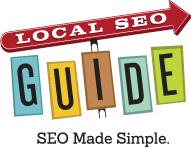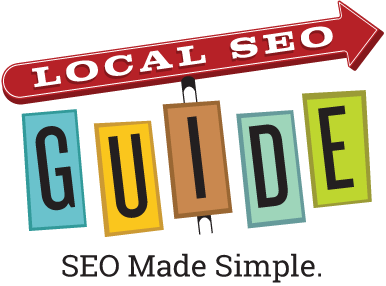Yellowbot made a big splash in the local search world earlier this year when they launched and grew very quickly for a site that was basically just a directory of businesses and service categories. Within three months of its launch the site reportedly had somewhere between 500,000 and 1,000,000 monthly visitors.
So how did they do it? I already talked about their effective use of creating tag pages for microcategories in my post about keyword expansion and local category search. These guys have created the best implementation of Localeze’s enhanced content database I have seen.
But in my book Yellowbot’s real innovation is the elimination of the category hierarchies.
On most local search sites you will find a category directory page like Automotive that houses a number of subcategories, and in some cases those subcategory pages like Auto & Truck Wrecking have a directory of sub-subcategories. These pages are created by product managers who are still thinking that an online yellow pages site is a book that requires a directory for people to find what they are looking for. And that would be true if it wasn’t for those little search boxes that people seem to like to use. Remember the Yahoo Directory? When was the last time you used that? 1997?
But screw the user, the real innovation here is the SEO benefit of removing these pages. Very few people search for “Automotive in Pleasanton”. Most people are going to search for the subcategory (e.g. Auto Wrecking) or the sub-sub category (e.g. Auto Salvage Yards) so having the category directory page does not have a lot of SEO value. In fact these pages are an impediment to SEO.
Let’s say Superpages has information for 10,000 cities and 18 category directory pages for each city. That’s 180,000 pages that search engine robots have to crawl through to get to actual content that might be useful for SEO. And if each category directory has 10 subcategory directories underneath it, well you do the math.
By removing this obstacle to both users and search engine spiders Yellowbot has created a well-flattened website with a tremendous amount of relevant internal links. The tags on their results pages might be a overdone a bit and their city pages may not be the prettiest things but they have figured out a way to effectively move the bots around their site to great advantage.
And for that I take my white/gray/black hat off to them. Well done gents.



15 Response Comments
Thank you, i never heard about YellowBot before.
It is good to have alternative to YellowBooks.
Wow: “category directory…pages are an impediment to SEO.”
Does this imply that (for local search engine sites) that “results” and “profile” pages have inherently more SEO value? Although I suppose that depends on how many relevant internal links those types of pages offer…
Think about it this way Ed – How many times do you search for “Automotive” in your city v. “brake repair” in your city? How many times do you search for “Food & Dining” in your city v. the name of a local restaurant?
It never ceases to amaze me how much traditional YP publishers (and their technology vendors) don’t get it.
A couple years ago I was having a conversation with the CTO of a major publisher and we were talking about online strategy for their site. Their site was a doorway to several hundred local market areas.
He was quizzing me about on-site search engines (Fast and a few others who’ve now slipped into obscurity) and ontologies and a bunch of other esoteric junk only relevant to big publishers. I said “That’s all great, but you have to come to the realization that Google is your de-facto search engine”.
In other words, all the onsite technical wizardry is useless without baring your data to the prying eyes of G.
At that time, he was still talking about anti-scraping technology to obscure their valuable data and outsourcing all their traffic needs to someone else… who go it.
For all I know he still is 🙂
Hi Will, Fast Search is alive and well as far as I know. According to the fastsearch.com website it’s still used by for example Citysearch.com. (At YellowBot.com we built our own search engine to make sure we’d be in control of development of core assets like that …)
Andrew: Fun article. I’m pleased the tags are good for the search engines. We honestly were just implementing it that way because we were building a site that we’d want to use ourselves, and the traditional taxonomy / categories are obviously not it.
– ask
Hey Bjørn,
Apologies for lack of clarity – I was grouping Fast with others — the others having slipped into obscurity, not Fast, who is alive and well.
My big point was that like many systems folks this guy was more about the medium than the massage.
Cheers
Andrew, that’s an awesome find. Looks like they’ve compressed their architecture significantly with that.
The language you used made me need to re-read though, and it’s a bit unclear above. I realize now that you were comparing automotive in pleasantown with auto wrecking in pleasantown, favouring the latter.
But it sounded like you were comparing auto wrecking with automotive in pleasantown; in that case, I’d say local searchers are more likely to use the broad keyword plus their local modifier, rather than the subcategory and local modifier. This being because their experience with SEs is that they can’t use too many modifiers.
The problematic stuff I’m referring to is:
“On most local search sites you will find a category directory page like Automotive that houses a number of subcategories, and in some cases those subcategory pages like Auto & Truck Wrecking have a directory of sub-subcategories. These pages are created by product managers who are still thinking that an online yellow pages site is a book that requires a directory for people to find what they are looking for. And that would be true if it wasn’t for those little search boxes that people seem to like to use. Remember the Yahoo Directory? When was the last time you used that? 1997?
But screw the user, the real innovation here is the SEO benefit of removing these pages. Very few people search for “Automotive in Pleasanton”. Most people are going to search for the subcategory (e.g. Auto Wrecking) or the sub-sub category (e.g. Auto Salvage Yards) so having the category directory page does not have a lot of SEO value. In fact these pages are an impediment to SEO.”
Perhaps I’ve got it all twisted and haven’t actually gotten what you meant?
Montreal,
I think you and I are in agreement that the post could use a little editorial oversight, but I think we are in disagreement re how people search for auto wrecking services locally. If I understand you correctly, you are saying they search for “automotive” in their area and I think they are more likely to search for some variation of “auto wrecking” in their area.
A
The Montreal hotel I work with is a fair example of my point. People are more likely to search for Montreal hotel rather than downtown Montreal hotel, for instance. Based on our traffic stats and Overture and Google’s AdWords CTR tool.
Getting back to your point above though, I suppose it depends on what you classify as the “top” category. Probably “travel” or “accomodations” (though the hotel owner would like us to rank for Montreal accomodations too), in this case, which would likely fall into the less-useful top level categories you mentioned.
What do you think?
BTW, this is Gab (the guy who wrote the 20 Sphinners you should know post … we’re also friends on Sphinn 😉 )
One more point: Your captcha just displayed for me, probably triggered because of the number of comments I made here today. Just thought I’d point you to this post on breaking captchas, and why you might want to pick a tougher one to crack. Slightly Shady Breaks Captchas
Consider this a trackback :).
Gab/Montreal,
I agree that the category of service is crucial. I haven’t done a lot in the hotel space and I imagine my first search in a city would be cityname+hotel (wouldn’t “cheap” or “best” be typical modifiers?
That said, most IYPs would not treat “Hotels” as a parent category. For example on Superpages hotels can be found in the “Travel & Transportation” parent category. And I defy you to find anyone who searches for “Travel & Transportation in Pleasanton” or any other city for that matter.
Re the Captcha, thanks for the tip. I am probably inviting disaster here but right now my spam plugins seem to be working ok. Whenever I do my next blog update I’ll fix this issue.
Good point about the hotels modiifer. My client actually wants me looking at those, I just haven’t had time yet. I think the cheap might best be suited for the hostel they run and best to the hotel.
On the IYP front, we’re completely in agreement on people not looking for “Travel and Transportation in Pleasonton,” hehe. On a related note, if we expand our definition of “local” to Country-level, plenty of people search for “travel + country”. But that’s a very different beast, so I think it’s just an interesting aside.
BTW, I passed this on to Rand at SEOmoz, bc they run Yelp. Hopefully you get a link from the Chief Moz 🙂
I never heard about before, thanks
I liked the concept of the tags
We are going to experiment with this site and will let you know how it goes. We work with many car dealers, so it’s an excellent case study.